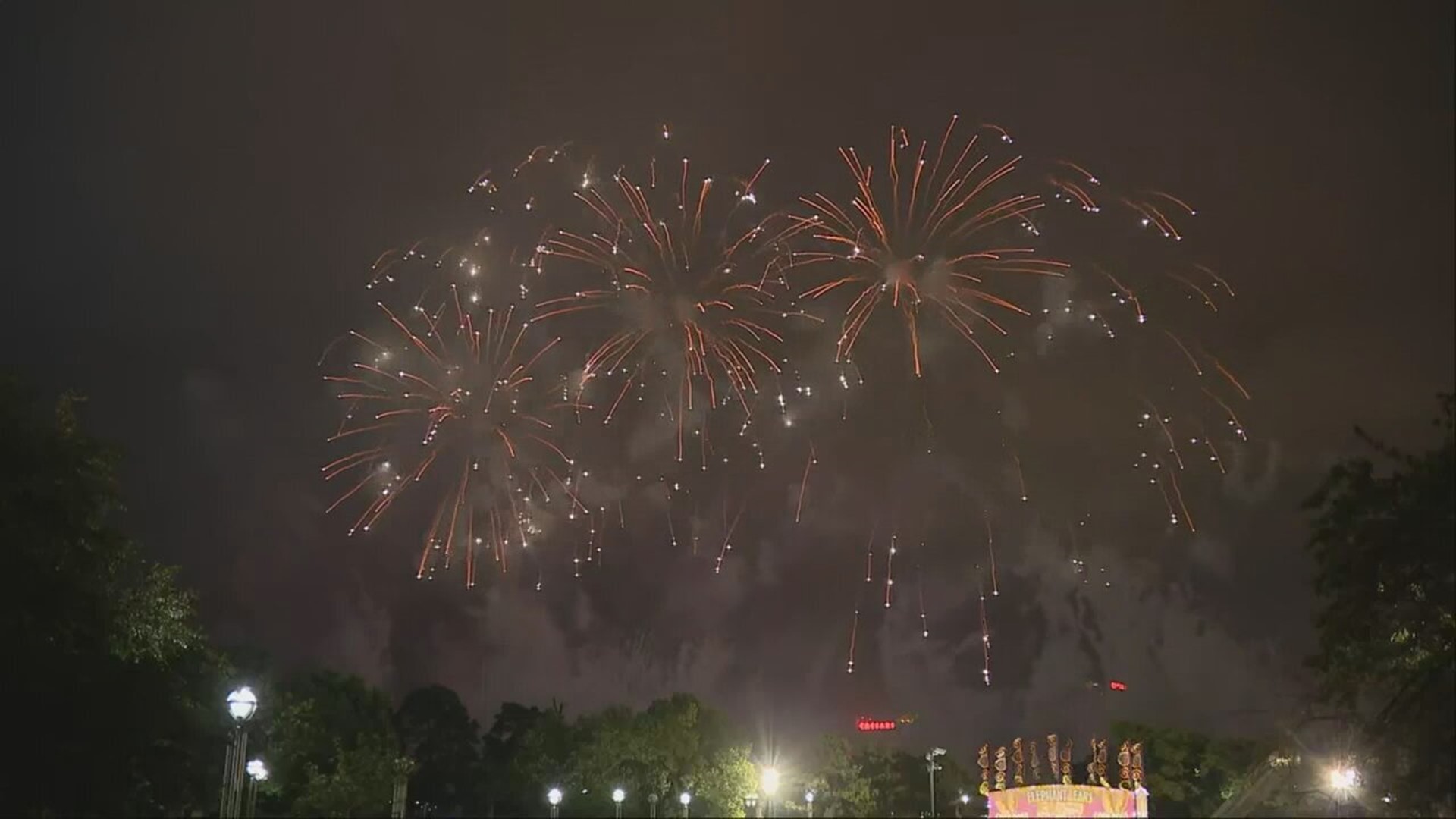PENNSYLVANIA, USA — Air quality is a growing concern across Pennsylvania after smoke from Canadian wildfires caused code red alerts in June. Now, there is also concern that 4th of July fireworks celebrations could be adding to the mix.
The Philadelphia, Pittsburgh and Maryland regions declared code orange air quality alerts Wednesday morning in part due to increased particulate matter from Fourth of July fireworks displays.
"The particle pollution that is produced by the fireworks is added to the particles that are already in the air and that’s just taking [the situation] from bad to worse," said Katherine Pruitt, national senior director for policy health education with the American Lung Association.
Medical experts say the increased levels can cause additional health risks.
"If you are breathing in additional particulate matter and especially if you are susceptible to lung problems or lung issues you could have more troubles," said Dr. Jeff Lazar, pulmonologist with WellSpan Health.
According to a 2015 study, lethal air pollutants increase by 42% on the evening of the 4th of July and into July 5 in areas across the country due to firework smoke.
"The data shows that there is a real challenge that one of the nation’s favorite activities on July 4th also can have some real negative repercussions for our health," said PennEnvironment Executive Director David Masur.
Experts add the combination of the firework smoke and lingering effects from the Canadian wildfires creates a bigger air pollution challenge.
"That’s all exacerbated by the fact that this summer we've been dealing with the wildfires in Canada, so we already have a significant air pollution challenge from that particulate matter," said Masur.
No air quality alerts were declared for the south central Pa. region on Wednesday but, experts say people still need to be mindful that particulate matter is still lingering from Tuesday’s fireworks.
"It usually takes a day or so for the pollution that is generated from fireworks to dissipate," said Pruitt.
Medical experts say the best way to protect yourself is to be aware of current air quality conditions and take safety precautions when necessary.
"Certainly check every day check your air quality index. Once, those numbers start creeping up you need to be much more mindful," said Dr. Lazar.
More tips on how to protect yourself on poor air quality days can be found on the American Lung Association's website.

